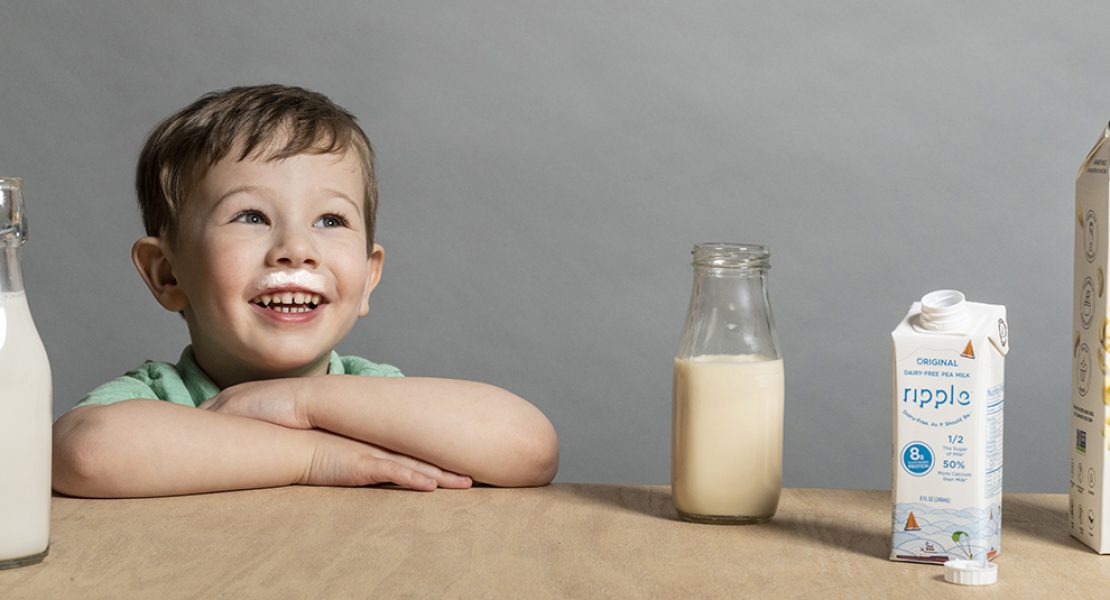Not Milk?

Parents struggling with a fussy baby or a young child with seemingly random bouts of tummy trouble can seek specialized care that just might make sleepless nights and changing bedsheets a thing of the past.
Increasingly, nowadays, pediatricians are seeing young patients with milk intolerance, meaning the youngsters suffer digestive upset after consuming milk, cheese, and other dairy products. In infants, the intolerance can occur from milk proteins in formula or proteins that pass from the mother’s diet through breastmilk. In toddlers and kids, the intolerance may appear as soft stool, diarrhea, gut pain, or gas.
If a child is experiencing these symptoms, it’s time to call the pediatrician for an appointment. Eva Mayer, MD at St. Luke’s Coopersburg Pediatrics says she is seeing more and more milk intolerance these days.
“What we see in the office is a lot of infants do just fine initially and then present with gastro symptoms, such as fussiness, gassiness, and spitting up,” Dr. Mayer says.
Young children—ages 2 to 4—are old enough to tell parents their bellies hurt, and Dr. Mayer says parents may notice their child experiencing soft stool or diarrhea, stomach pain, or gas. Both babies and kids may lose their appetite as part of their discomfort.
Dr. Mayer says she often asks parents to observe their child’s dairy consumption and see if any irritability occurs afterward. However, if a baby or child is losing weight, she will refer them immediately to a specialist.
“There have always been fussy babies and they can’t tell us if it’s their bellies,” Dr. Mayer says.
Fortunately, St. Luke’s University Health Network has pediatric gastroenterologists on staff who are specialized in diagnosing and treating digestive problems in children.
Pediatric gastroenterologist Kathy Chen, MD joined St. Luke’s in September.
“I SEE A TON OF MILK-INTOLERANT PATIENTS; IT’S ONE OF MY MOST COMMON DIAGNOSES,” DR. CHEN SAYS.
When babies show post-meal fussiness, have diarrhea, or are losing weight, there’s a good chance they are sensitive to the formula they’ve been fed. Dr. Chen says if your child has vomited, had diarrhea, or developed a body rash after consuming dairy more than once, then it’s time to see the pediatrician for advice. Children who have trouble breathing should be taken to emergency care right away to ensure a dangerous allergic reaction, anaphylaxis, is not occurring.
Once a child is referred to Dr. Chen by a pediatrician, family doctor, emergency room, or urgent care, she may enact a 30-day elimination diet, making dairy off-limits to confirm the intolerance. After that, there are many nutritional options a family may pursue.
Because infants rely on bottle-feedings for their primary nutrition and caloric consumption, they are prescribed hypoallergenic milk alternatives by the physician.
“With an infant, under the age of 1, losing weight, I want them monitored closely. I would use a prescription-based formula with specific fat, calories, and protein,” she says.
However, since milk and dairy is only a portion of a toddler’s balanced diet, families with a milk intolerance diagnosis can take to the supermarket and begin sampling whatever plant-based milk they desire, Dr. Chen says.
There are many tasty milk alternatives on the market, such as the plant-based varieties lining the coolers of the supermarket in the form of soy, almond, cashew, and coconut-based beverages.
“At the store the other day I saw hemp milk and there are pea products,” Dr. Chen says. “Pea is a hot new milk protein now.”
Parents are given the freedom to choose the milk alternative that works and tastes best for their child. Dr. Chen does not recommend one brand or variety over another.
Chen says St. Luke’s University Health Network tripled its numbers of pediatric specialists in the last year. Her office is located at the St. Luke’s Quakertown Campus and she has colleagues at both the Bethlehem and Anderson Campuses.
“Our kids don’t have to go all the way to Philadelphia to see a specialist anymore,” Dr. Chen says. “It’s super-convenient for families.”
To find a pediatrician or for more information on pediatric gastroenterology and other children’s health services, call St. Luke’s University Health Network at 1.866.STLUKES (785.8537) or visit sluhn.org/pediatrics.
MEET THE DOCTOR: KATHY CHEN, MD PEDIATRIC GASTROENTEROLOGIST
Pediatric Gastroenterology (GI) focuses on the entire digestive system, including the gastrointestinal tract, hepatic (liver) system, and nutrition. “My goal is to keep children healthy by treating disease as well as educating patients about lifelong healthy habits.”
- St. Luke’s University Health Network, Quakertown Campus, 1021 Park Avenue, Suite 30, Quakertown
- Received her degree from the Medical University of South Carolina, 1998
- Internship and residency at New York-Presbyterian Weill Cornell Medical Center, NYC
- Named Philadelphia Magazine Top Doctors 2018
Chen joins St. Luke’s University Health Network from St. Christopher’s Hospital/Drexel University College of Medicine in Philadelphia


















